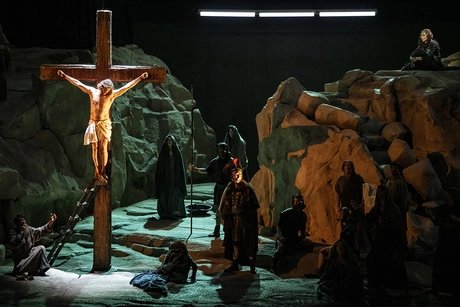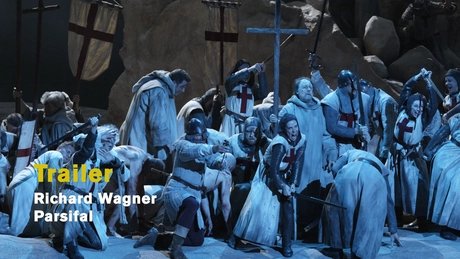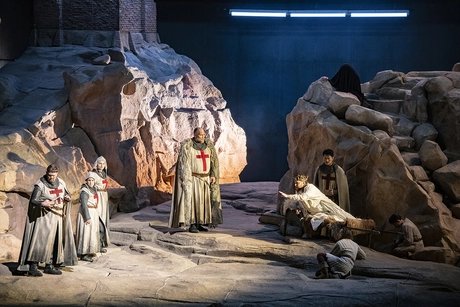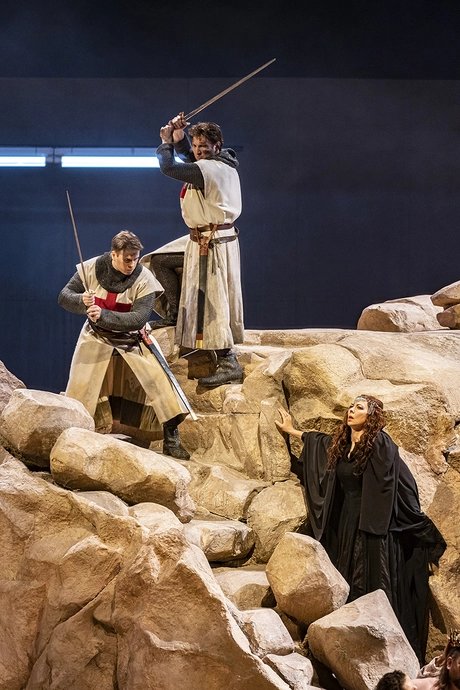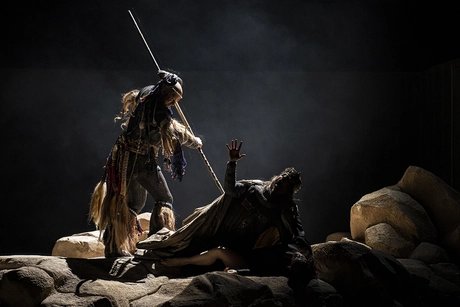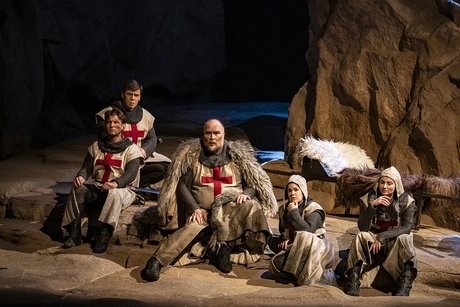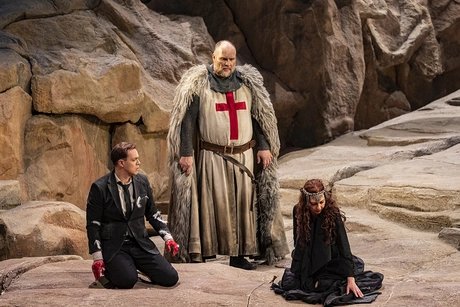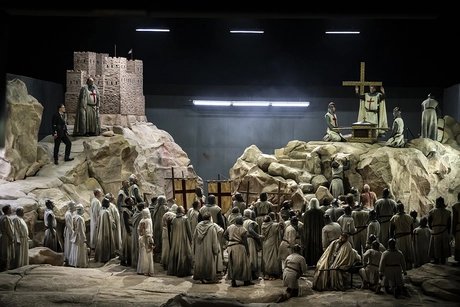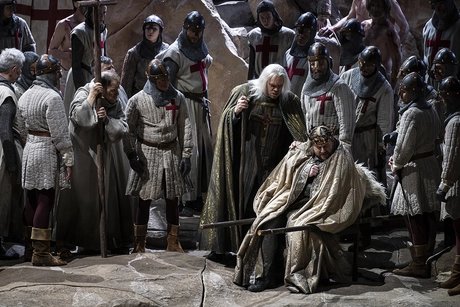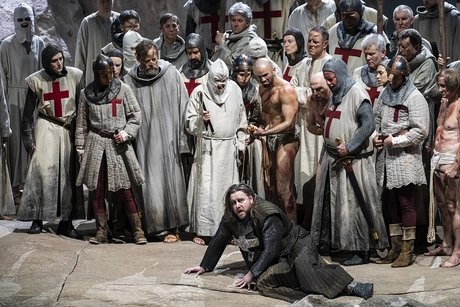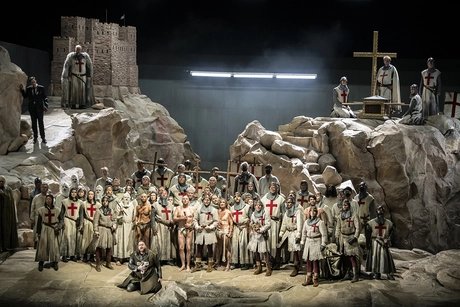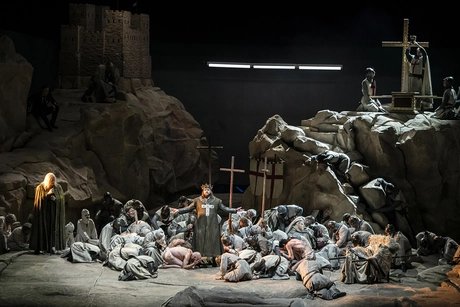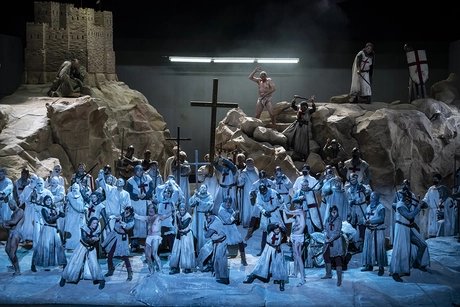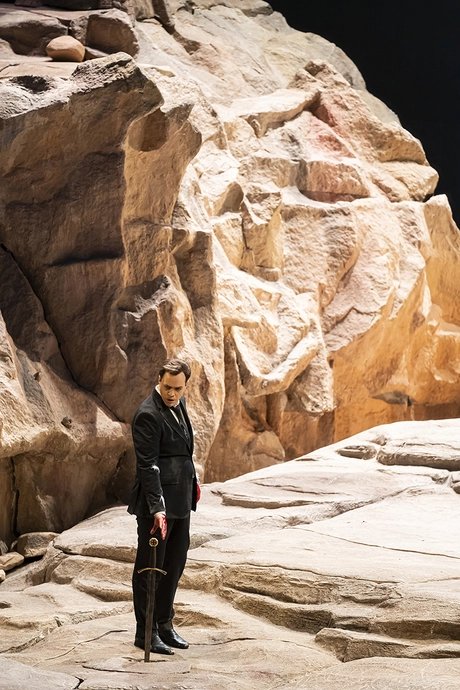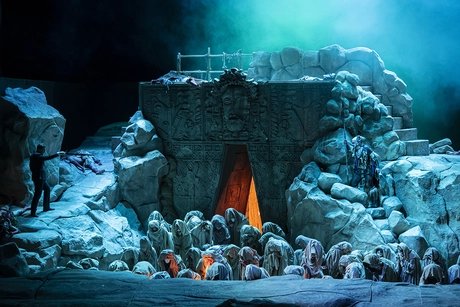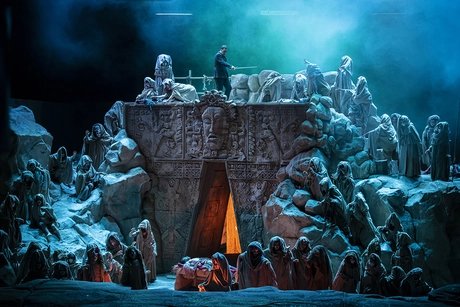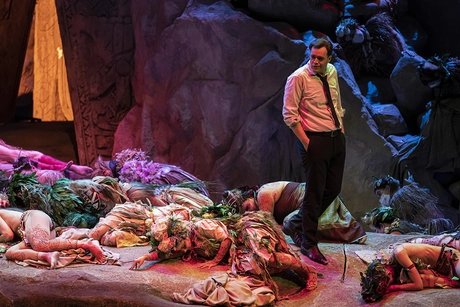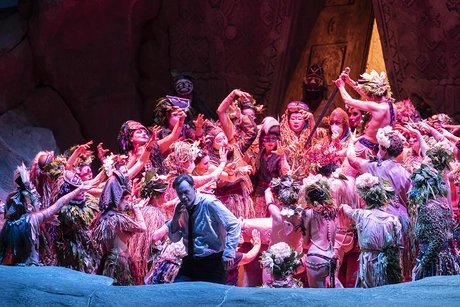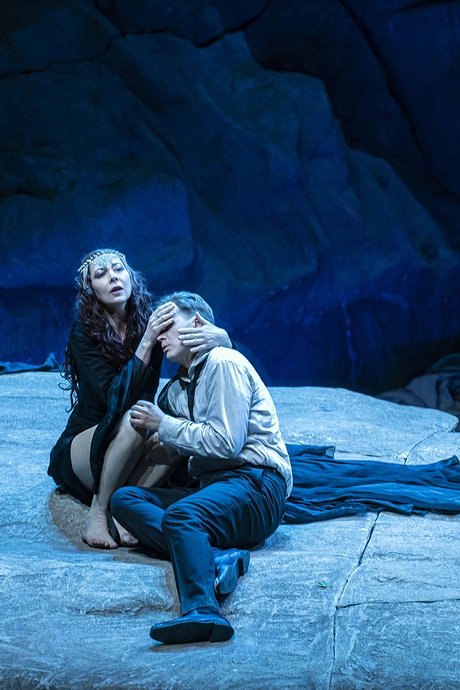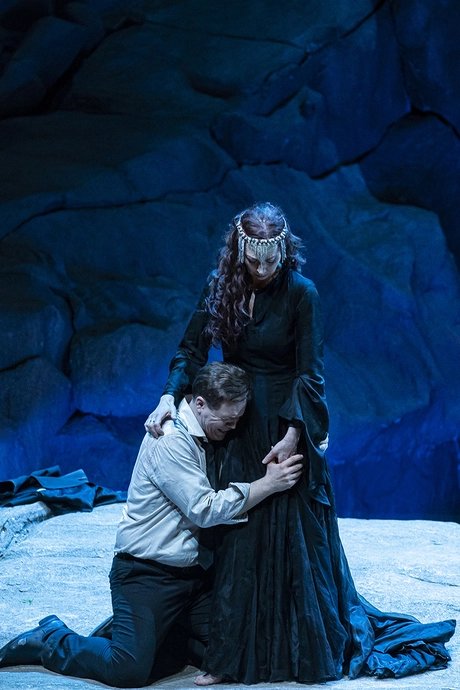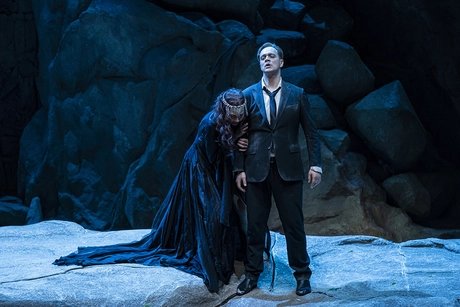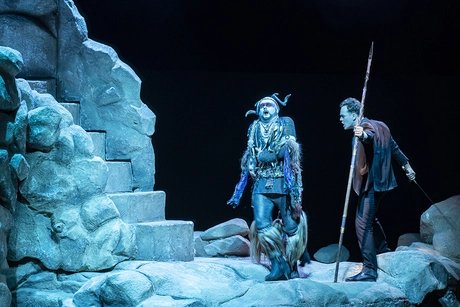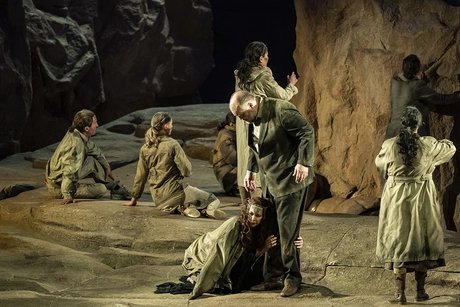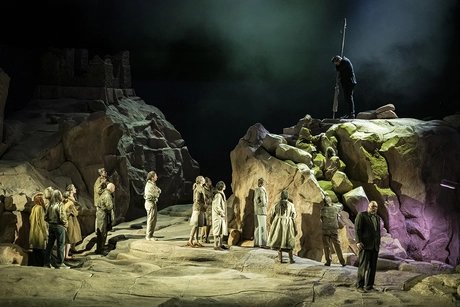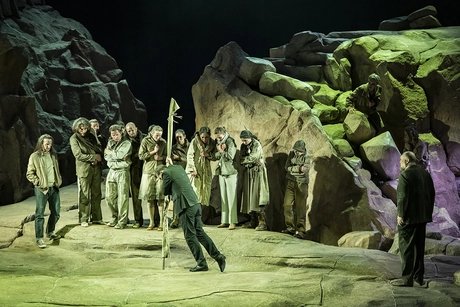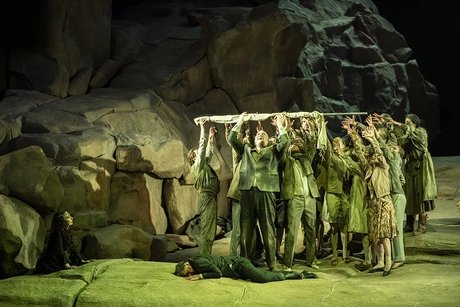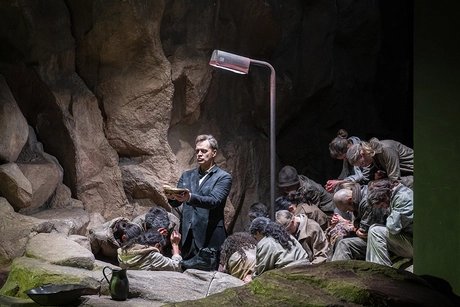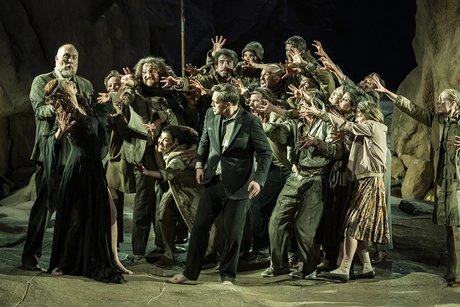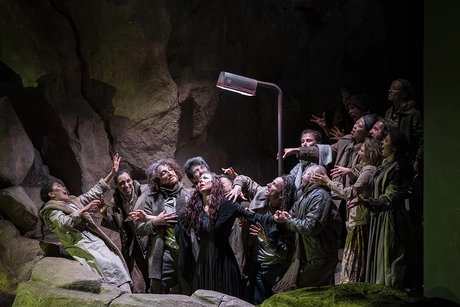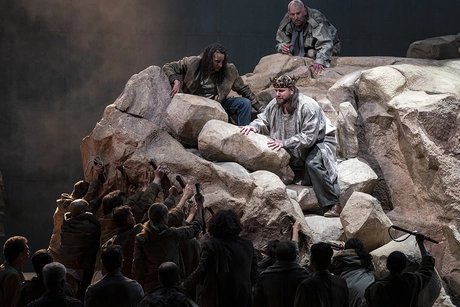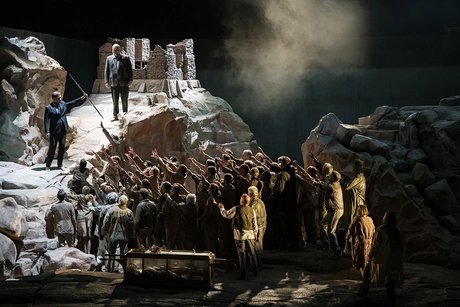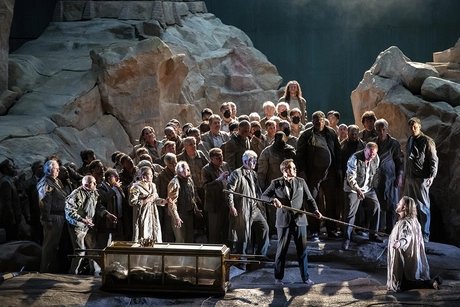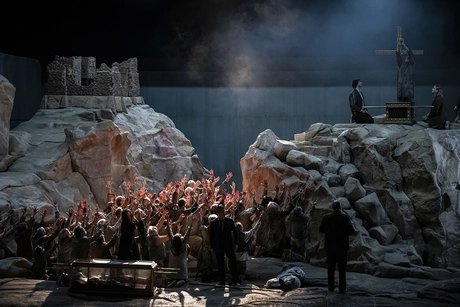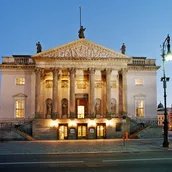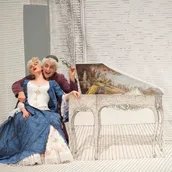
Top Event
With Richard Wagner's monumental, festival-dedicated production of PARSIFAL, the Deutsche Oper Berlin brings one of the most profound works in operatic history to the stage. Director Philipp Stölzl interprets the story of the "pure fool" as a striking journey through two millennia of religious fantasies of power and redemption – visually realized in opulent tableaux vivants.
- Conductor: Tarmo Peltokoski
- Director: Philipp Stölzl
- Cast: Thomas Lehman, Albert Pesendorfer, Attilio Glaser, Philipp Jekal, Irene Roberts, and others
PARSIFAL by Richard Wagner – An Opera Classic with Spiritual Depth and Contemporary Relevance
PARSIFAL, premiered in Bayreuth in 1882, is Richard Wagner's final work – a spiritual musical drama that combines Christian, Buddhist, and mythical motifs into a new operatic myth. The story follows the young Parsifal, who finds his way to redemption between the worlds of ascetic purity and sensual temptation – and ultimately becomes a savior himself.
With famous scenes such as the Good Friday Magic and one of the most emotional choruses in operatic history, PARSIFAL is both powerfully sonorous and deeply meditative – a must-see for Wagner fans and newcomers to classical opera.
Philipp Stölzl's Direction – Religious Critique, Power Mechanisms, and Visual Opulence
Director Philipp Stölzl, known for his visually stunning productions, focuses on the dark side of religious communities: fanaticism, violence, exclusion, and the repetition of ritualized power structures. In Stölzl's interpretation, PARSIFAL becomes a critical commentary on anti-Enlightenment thinking, belief in miracles, and the dangerous longing for a strong leader.
The scenes unfold in impressive tableaux vivants that bridge the gap between past, present, and future – thereby revealing the explosive nature of Wagner's redemptive drama in the here and now.
Experience Wagner's PARSIFAL live in Berlin
Immerse yourself in a world of mysticism, psychology, and social criticism – with Wagner's PARSIFAL at the Deutsche Oper Berlin. One of the most important operas in the repertoire, interpreted with powerful sound, visually stunning staging, and more relevant than ever.- Venue: Deutsche Oper Berlin, Bismarckstraße 35, 10627 Berlin
- Duration: approx. 5 hours 30 minutes / Two intervals
- Performed in German with German and English surtitles
Additional information
Opera and poem by Richard WagnerFirst performed on 26th July, 1882 in Bayreuth Premiered at the Deutsche Oper Berlin on 21. October, 2012
Pre-performance lecture (in German): 45 minutes prior to each performance
Pre-performance lecture (in German): 45 minutes prior to each performance
Participating artists
Tarmo Peltokoski (Musikalische Leitung)
Philipp Stölzl (Inszenierung)
Mara Kurotschka (Co-Regie)
Conrad Moritz Reinhardt (Bühnenbild)
Philipp Stölzl (Bühnenbild)
Kathi Maurer (Kostüme)
Jeremy Bines (Chöre)
Ulrich Niepel (Licht)
Christian Lindhorst (Kinderchor)
Thomas Lehman (Amfortas)
Tobias Kehrer (Titurel)
Albert Pesendorfer (Gurnemanz)
Attilio Glaser (Parsifal)
Philipp Jekal (Klingsor)
Irene Roberts (Kundry)
Burkhard Ulrich (1. Gralsritter)
Benjamin Dickerson (2. Gralsritter)
Meechot Marrero (1. Knappe)
Arianna Manganello (2. Knappe)
Sunnyboy Dladla (3. Knappe)
Michael Dimovski (4. Knappe)
Lilit Davtyan (Blumenmädchen (1. Gruppe))
Meechot Marrero (Blumenmädchen (1. Gruppe))
Arianna Manganello (Blumenmädchen (1. Gruppe))
Hye-Young Moon (Blumenmädchen (2. Gruppe))
Lucy Baker (Blumenmädchen (2. Gruppe))
Stephanie Wake-Edwards (Blumenmädchen (2. Gruppe))
Stephanie Wake-Edwards (Stimme aus der Höhe)
Chor der Deutschen Oper Berlin (Chöre)
Kinderchor der Deutschen Oper Berlin (Chöre)
Orchester der Deutschen Oper Berlin (Orchester)
Opernballett der Deutschen Oper Berlin (Tanz)
